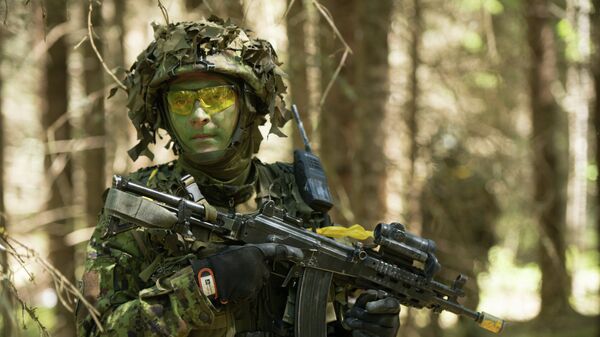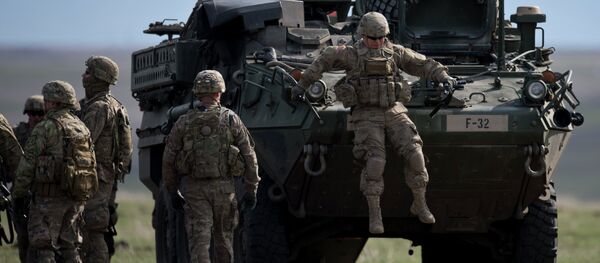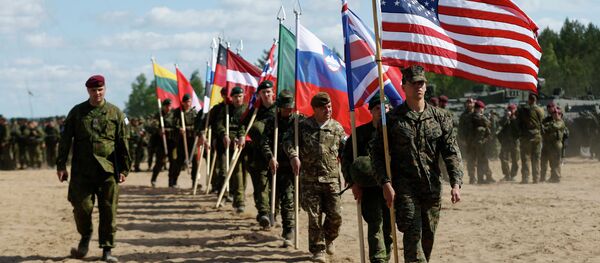However, the political scientist jumps on the bandwagon of proponents of further NATO expansion in Eastern Europe.
Providing no credible evidence to confirm Russia's militaristic intentions, the expert claimed that "Moscow's future trajectory" is "highly uncertain."
He referred to Russia's "saber-rattling along NATO's eastern flank" — including "military exercises" and "air and naval maneuvers" — turning a blind eye to the fact that it was NATO that has drawn closer to Russia's borders over the last 25 years.
The expert describes Russia's imaginary military strategy in the Baltic region, failing to provide any evidence of Moscow's malicious plan to invade the Baltic states and not answering the obvious question as to why the Kremlin would launch such an attack.
"In such a scenario, Russian forces would likely attempt to entrench their positions by surging highly capable, mobile air defense systems behind their troops. In combination with Russian air defense and offensive missile systems in Kaliningrad, these moves would quickly make access to the entire Baltic Sea region both difficult and costly for NATO," the political scientist elaborated.
Although "in an all-out conventional war, NATO far outclasses Russia and would likely prevail," Moscow, according to Mr. Chivvis, may use its nuclear weapons in response, pushing the world to the brink of a nuclear conflict.
Thus far, the expert justified the creation of the Very High Readiness Joint Task Force in Eastern Europe, recently announced by Pentagon chief Ashton Carter. According to the expert, this initiative will minimize the probability of the aforementioned (mythical) scenario.
"Opponents of the US deployments will argue that last week's announcements are evidence of chronic US aggression and are undesirable because they could exacerbate tensions with Russia," the political scientist noted, insisting that "these objections are misplaced."
In contrast, American historian and professor of Russian studies at Princeton University and New York University Stephen Cohen has repeatedly stressed that NATO's unprecedented military buildup near Russia's borders is unjustified and based on a completely false pretext. Washington's irrational and irresponsible behavior in Eastern Europe could bear its bitter fruit, the professor warned.




